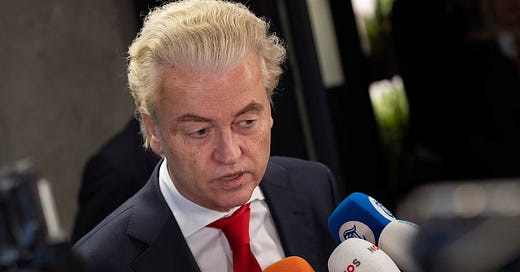Geert Wilders Steps Back from Prime Minister Position
Following a resounding win in the November election, Wilders resigned as Prime Minister due to insufficient support from all sides of the political spectrum.
Dutch far-right leader Geert Wilders announced on Wednesday, March 13th, that he would not pursue the role of the Netherlands' next prime minister, even though his Party for Freedom (PVV) won the most votes in national elections last year.
In his radical anti-immigration, Islamophobic, and Eurosceptic stance, Wilders engaged in discussions with various parties, including the centre-right People's Party for Freedom and Democracy, the populist Farmer Citizen Movement, and the centrist New Social Contract, aiming to form a right-wing alliance.
"I really wanted a right-wing Cabinet. Less asylum and immigration. Dutch people number 1," Wilders wrote on X. "The love for my country and voters is bigger and more important than my own position."
Despite his efforts to garner coalition support, Wilders acknowledged that securing unanimous backing from all parties in the coalition was unattainable.
"I can only become Prime Minister if ALL parties in the coalition support it. That was not the case." Wilders said on X.
While Dutch national broadcaster NOS speculated about a scenario where party leaders would stay in parliament rather than join the new government, Kim Putters, overseeing the negotiations, hinted at the likelihood of a technical Cabinet. This arrangement would involve appointing politicians and experts not closely aligned with any party to top government positions, working closely with parliament.
Although Wilders will not lead the government, he and his Party for Freedom are to remain influential, shaping the administration's policies from the sidelines.






